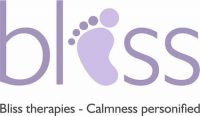Article by Sally Earlam FMAR, BSc, RN, PGCE
Head of Training and Education – and yes – I’m fab after 50!
Women’s Health in the 21st Century.
The way we are living our lives has changed dramatically over the last century, particularly for many females. According to the Office of National Statistics more women are now working than ever before, and many will have to work well into their 60’s. Alongside work, women frequently hold responsibility for running the home, family life, budgeting etc. It is therefore little surprise that women often have times when pressures may feel excessive – throw all of that in with our changing hormone levels associated with peri-menopause and menopause and no wonder that this is a time when we could all do with a little extra help.
The Mental Health Organisation Health Statistics1 report that women in the UK are more likely to have an anxiety disorder and this is most common between the ages of 45 to 54 – but why? And what can we do to protest our own emotional health?
This is a time when many things can be happening in our lives, there may be children leaving home, worry about getting work and also dealing with the peri-menopause and menopause. Hormones are essential for women’s health and changing levels can affect us both physically and emotionally. As we approach the menopause, our oestrogen levels drop; oestrogen has many functions, including a direct impact on the stress hormone Cortisol. As oestrogen levels drop, Cortisol levels can rise which means that Adrenalin (our primary stress hormone) can easily be triggered in the body leaving us feeing anxious and stressed. On top of dealing with our changing hormones we also have to tackle the bad press that Western society tends to place on the menopause where our youth-obsessed cultures emphasise “loss” of fertility, rather than transition and the gain of wisdom and freedom. The medical or “disease” model of menopause seems to be dominant 2.
It is surely now time to challenge this attitude; the menopause is not an illness, but is rather a natural gradual process whereby a woman’s body moves out of childbearing years and aims to head into a liberated and more relaxed phase of life. Maud Mead (anthropologist) describes her own positive experience of giving up PMS for PMZ (post- menopausal zest). However, we cannot ignore the fact that women can experience some common physical and emotional symptoms associated with peri-menopause and the menopause, but women should be able to feel empowered to look for support to help them deal with symptoms they experience and not feel they are ‘ill’ or are less valued in society.
How could Reflexology help support you through the menopause?
Reflexology is a complementary therapy that is based on the theory that different points and areas on the feet, lower leg, hands, face and ears correspond with different areas of the body. Reflexologists believe that working these points or areas aids relaxation and helps improve wellbeing. Reflexology may also help improve mood, release tension and aid sleep; helping us to cope better and easing the stresses during this transitional time.
Three common symptoms that women can experience in peri-menopause and menopause are hot flushes, poor sleep and anxiety. A study has been completed in Iran, looking at the effect of Reflexology on menopausal women and showed a reduction in hot flushes and an improvement in sleep3. Reflexology has also been shown to significantly reduce anxiety state associated with ‘an increased feeling of ease and a reduction in anxiety.4
Reflexology acknowledges that every person is a unique individual, the only way to know if reflexology will help you is to try it!
N.B. Reflexology is not an alternative to seeking medical help. Reflexologists do not diagnose, prescribe or claim to cure. They are there to support your journey.
Hand Reflexology techniques for you to try yourself!
The Association of Reflexologists (AoR) has been promoting the use of hand reflexology as a means of self help and have shared a few techniques for you to try on your own hands or even better work with a friend or family member and work on each other’s hands. The AoR recommends you use hand reflexology for 5 minutes a day or when you feel that stress levels or anxiety are building.
It is easier to carry out hand reflexology using a little cream although it can be done without. There are also some free videos produced by the AoR (visit www.aor.org.uk and click on free videos) showing a few simple sequences to help you learn.
For more information on reflexology have a look at the Association of Reflexologists website. There are interactive hand and foot maps you can look at, plus YouTube videos on how to carry out hand reflexology and plenty more useful information on Reflexology.
If you feel like trying a full Reflexology treatment, there is a ‘find a reflexologist’ search, where you can put in your postcode to find a well trained and insured reflexologist local to you
www.aor.org.uk

